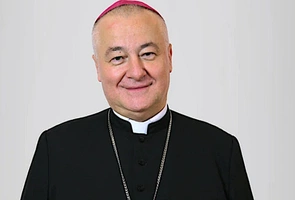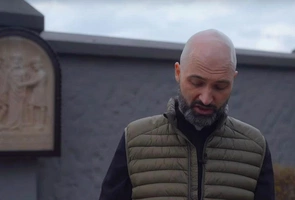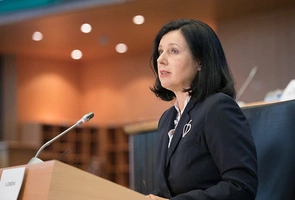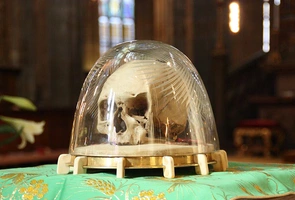In hope we are saved: Hope and the Question of Man's Freedom
Komentarz do encykliki Benedykta XVI "Spe salvi" / A commentary to the "Spe salvi" encyclical, English translation (Chapter III)
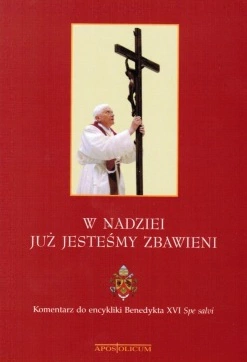
Rev. Jerzy Lewandowski
HOPE IN SALVATION AND SALVATION IN HOPE
In hope we are saved
A Commentary on Benedict XVI's encyclical letter Spe salvi
A Collective translation reviewed and corrected by Filip Maj
Warszawa 2010
III. Hope and the Question of Man's Freedom
Salvation is a form of liberation from dependencies that restrict man. They can be: sin, illness, death and other factors of enslavement or of making one dependent. The Christian salvation "through hope" has its variants of salvation "through progress", "through freedom", "through science" etc. The progress in science, technology, life organization, medicine and other spheres of enhancing our life, promises to make man's life easier. It is a kind of substitute for salvation that man is offered - prolonging life, soothing pain, relaxing ties, changing morals etc. Benedict XVI ponders on the influence of different ideas of salvation on the changes of man's approach to the Christian idea of salvation.
The modern idea of progress, as an idea of salvation "through progress", refers to the postulate of progress in the humanization of man's life. It pays little or no attention to the theological project of salvation. The ethical postulates and requirements, which are difficult to meet in our short earthly lives, are reduced in the idea of progress. The idea of theological (Christian) salvation is to be replaced by economical and political postulates that refer to the very possibility of man's interaction with fruits of the Earth, where they live and also which they live off. Also, the idea of progress accepts the Biblical postulate — „subdue to the earth” (cf. Gen 1:28).
The assumption that, with time, God systematically passes over almost the entire power over the earth to man, lies at the basis of the ideology of scientific progress and serves as a confirmation of its mission and vocation. The ideology of progress seeks to treat the "immanent" salvation, inscribed into the course of history and all the events on earth, as a current task. The idea of immanent salvation (through technological progress) opposes the idea of transcendent salvation (through eternal life). Complete salvation, however, has to synthesize the immanent and transcendent salvation inscribed into the act of creation. If separate, neither immanent, nor transcendent salvation is complete salvation.
Benedict XVI makes a distinction between material and spiritual progress. Material progress based on the summing-up of discoveries is different from spiritual progress based on moral decisions. The idea of progress, and progress itself, are based on summing up; one cannot sum up freedom though. Decisions have to be made anew every time. Thus, salvation "through freedom" and "through progress" are of different character. Although, one can implement some procedures and a list of precepts and injunctions, in the end, moral progress is determined by our personal choices of actions that we have to always make.
Freedom is a difficult gift for one to fulfil and realize, for it is partly determined by social rules, cultural and political systems. It is yet more difficult to realize individual freedom when we have to choose consciously, both in the interest of ourselves as well as of the collective. Only then can we speak of ethical progress. Otherwise, we are dealing with decisions based on social, political or religious dependence, i.e. with the "escape of freedom" (cf. Erich Fromm). Social structures are sometimes built on the basis of illusions of freedom. Freedom is choice, though choice is not always freedom.
In the encyclical Spe Salvi, it is stated that: First of all, we must acknowledge that incremental progress is possible only in the material sphere. Here, amid our growing knowledge of the structure of matter and in the light of ever more advanced inventions, we clearly see continuous progress towards an ever greater mastery of nature (Encyclical, n° 24). If the nature of human life progress was like this, it would not be a process of liberation and acquiring ever greater freedom. On the contrary, life would be a progress of enslavement, dependence and compulsion which organizes our everyday models of effort.
The ideas of salvation "through hope" and "through progress" or "through hope" connect, merge, overlap and interpenetrate. This allows a concealment of the actual meaning of man's decisions and their consequences. The very progress as an idea of liberation can be connected with either an overt or covert process of man's enslavement: enslavement in the name of progress and progressive ideas (Elzenberg 2002: 29). Progress as a type of salvation is inscribed into matter (technology) in a different way than it is inscribed into the spirit (man). Undoubtedly, the development of tools and means of communication releases human energy and produces more space for freedom. But it is not existential freedom.
Benedict XVI states: Freedom presupposes that in fundamental decisions, every person and every generation is a new beginning. Naturally, new generations can build on the knowledge and experience of those who went before, and they can draw upon the moral treasury of the whole of humanity (Encyclical, n° 24). Progress is about discovering the strength of freedom and one's ability to accept and realize it on one's own responsibility. Individual freedom becomes a contradiction of itself if it is not correlated with the freedom of others, if it disregards the freedom of other people, social and cultural systems.
Salvation depends on Gods' grace, but also on the way the individual and collective freedom is realized by man. A configuration of these elements is needed. This is formed when one makes a decision, as described by the great French existentialist Jean Paul Sartre (cf. Being and Nothingness), who said: man is condemned to freedom. The notion of the obligation to be free is a paradox, since sometimes freedom can be man's curse rather than his way to and condition for salvation.
Some 20th century existentialists emphasized the negative aspect of freedom from which the positive freedom stems. Christianity, which stresses the fact of freedom being God's gift, discerns its consequences in man's lack of responsibility for his life decisions. New generations and individuals can reject the legacy of freedom, which for them does not seem as evident as material discoveries. This kind of slavish behaviour can be observed in people who were subject to a long-lasting "training of enslavement" (e.g. in Poland under the communistic totalitarian regime).
The mere development of material instruments for life does not suffice for a spiritual progress to be valued positively. The moral treasury of humanity is not readily at hand like tools that we use; it is present as an appeal to freedom and a possibility for it (Encyclical, n° 24). Salvation through love and freedom is a recurring call and task to be accepted, even if at the cost of other values. Freedom as an act, as a decision and its realization is of structural and existential, not fanciful, character.
The functional approach to freedom assumes that it is impossible to realize it without appropriate social, organizational or religious structures. Without the right organizational structures of faith (churches, synagogues, mosques etc.), realizing religious freedom is much hampered, if not impossible. Such structures are needed to protect believers against the elimination of faith itself. The elimination of material structures of faith took place in totalitarian states and hindered religious freedom.
Freedom requires from us to be able to decide about ourselves and our fate. The right state of human affairs, the moral well-being of the world can never be guaranteed simply through structures alone, however good they are. Such structures are not only important, but necessary; yet they cannot and must not marginalize human freedom (Encyclical, n° 24). Benedict XVI sees a threat to the freedom in the world in the lack of ways of realizing it in countries where personal and collective freedom are not recognized as principal values.
In some countries, human rights to freedom are replaced by other principal values (e.g. clan loyalty, class domination, territoriality, racial purity etc.). Even the best structures function only when the community is animated by convictions capable of motivating people to assent freely to the social order. Freedom requires conviction; conviction does not exist on its own, but must always be gained anew by the community (Encyclical, n° 24). Religious beliefs must not be imposed; they should be chosen on account of the gift of freedom.
Freedom is often jeopardized, since — because of what it is — it constitutes a threat to power, ideology, organization etc. Individuals enjoying freedom are excluded, marginalized, devalued. Actions need to be taken so that natural man's freedom can be realized in specific structures and communities. Numerous individuals and communities willingly renounce their natural freedom in favour of organizations and their managing bodies that take the responsibility over both collective and individual freedom. This sometimes turns out to be a trap in which freedom easily turns into structural enslavement.
Benedict XVI adopts a radical stance on freedom. His approach is a kind of "metaphysical liberalism" which assumes that man always remains free. People are subjected to a variety of enslavement (social, historical or religious) in different situations, even though they are naturally free and never lose their freedom. Human nature is connected with the nature of freedom. That is why people undertake a fight for freedom even after many years or centuries of structural enslavement. Freedom is man's natural good, accompanied by a great effort of generations aimed at maintaining it as a true good.
Behind the assumption of the metaphysical nature of freedom, a truth is concealed stating that freedom realized through culture can never meet the demands of metaphysical freedom. That is the pessimistic dimension of Benedict XVI's thoughts; he sees difficulties in the actual realization of the principle of metaphysical freedom. The pessimism results from observing the way mankind has used the gift of freedom throughout history and in the personal lives of individuals. Man stumbles over his own freedom, frequently resigning from it, forgetting it, turning it into illusions or its contradictions. Afterwards, he desires to escape them resorting to various liberation techniques.
Man always remains free (naturally) but his freedom (in culture) is always endangered, feeble and brittle. The kingdom of good will never be established in this world permanently. Anyone who promises the better world that is guaranteed to last for ever is making a false promise; he is overlooking human freedom. Freedom must constantly be won over for the cause of good (Encyclical, n° 24). Freedom as a value bestowed on man is a gift of good, but it can be made use of as good and as evil.
Man's freedom is ambivalent, split and confronted with itself as either "good" or "evil". All that has its roots in the imperfect nature of the world, where there is always a smaller or greater shortage of good. This incomplete space is an area for man's and the world's freedom. The deficit in the way good functions becomes a challenge and torment for man, who was granted the right to choose his own way of life. If one cannot make a proper use of this right, he is not able to recognize his own authentic good, which can easily be turned into one of the many substitutes of evil.
Benedict XVI believes that man lives and has to live in a world of axiological paradoxes; his freedom being one of the reasons for it. Free assent to the good never exists simply by itself. If there were structures which could irrevocably guarantee a determined—good—state of the world, man's freedom would be denied, and hence they would not be good structures at all (Encyclical, n° 24). Good is not determined absolutely, given to us permanently, without the need to make choices. That would be a state of paradise on earth, and that is not possible.
"Free assent to the good" is easiest when it is reduced to elementary biological and psychological needs. As one develops, one becomes conscious and transcends the biological frames. It becomes more difficult to choose between what is beneficial and useless, right and wrong, beautiful and hideous, good and evil. At first, what is "free" is "automatic", "natural" and "biological", determined by the laws of nature. Freedom must constantly be redefined and rediscovered, for it changes into enslavement all too easily.
Man is not just a biological object; we are also subjects and stand above the automatic mechanisms of nature (instincts, drives, genes). To the same degree, man is a cultural being, a subject that at times needs to make decisions in defiance of natural automatisms and existing patterns (e.g. enslavement system). Therefore, every generation has the task of engaging anew in the arduous search for the right way to order human affairs; this task is never simply completed (Encyclical, n° 24). By nature, depriving someone of his freedom is evil, and the possession of absolute freedom is impossible. It is a state that is realized only here and now, just like human life.
Never can freedom be fully realized on earth, neither in the past, nor in the future. Freedom keeps turning up and disappearing, thus it has to be sought after, recreated and consolidated, without hopes of maintaining it in the state it has just been in. The main characteristic of earthly freedom is its indeterminacy in time, changeability and frailty. Freedom cannot be sustained with rigid laws and golden rules unless they are acknowledged by man's soul and chosen by the subject. No one can be forced to be free or "condemned to freedom" (cf. Jean P. Sartre), for this would be a contradiction of freedom.
Freedom is rooted in every person's choice and many of these choices establish a certain order that is implemented in culture and social organization. It is then passed on to next generations. The notion of the "order of freedom" refers to the composition of factors of freedom and enslavement present in a culture or in a decision. What matters is not just the balance of freedom and enslavement, but also the relation between them. The structural dominance of factors of freedom enables an "order of freedom", which is dynamic and is a task for every man and every generation.
Benedict XVI stresses the importance of the collective transference of patterns of freedom: Yet every generation must also make its own contribution to establishing convincing structures of freedom and of good, which can help the following generation as a guideline for the proper use of human freedom; hence, always within human limits, they provide a certain guarantee also for the future. In other words: good structures help, but of themselves they are not enough. Man can never be redeemed simply from outside (Encyclical, n° 24). The paradox of structural freedom explains why improper (evil, wrong) behaviour is possible within good structures (e.g. a good family).
Merely good structures cannot be translated into good behaviour, because good is a value and not a structure; similarly, freedom is a value and not a structure. Good and freedom can be elements of a structure, but in the same way, evil and enslavement — being competing values — can form a structure too. This happens when they oppose the existing order of good and freedom. Even though it would seem possible, discovering the scientific bases of life cannot guarantee that the life will be good and free and that it will help maintain the order of good and freedom in the world. Science, being ambivalent, can be judged and used both in a positive and negative way.
Benedict XVI clearly expresses his doubts about the modern assumption of science being sufficient to maintain the axiological order and freedom. He thinks that man can never be redeemed simply from outside (Encyclical, n° 24). Francis Bacon was wrong, as were other contemporary thinkers, to believe that science can redeem man. Such expectations are fallible and excessive, and hope based on them — deceptive. Science does contribute to the process of the humanization of the world and humanity, but it can also play a part in man's destruction. It has to be steered, programmed and evaluated from the outside. In itself, it is neither directed at good nor at evil. It is in itself neutral and can always be either used well or misused. Science being neither good nor evil, can be judged differently, in accordance with the postulate of the freedom of cognition.
Church has axiological debts to pay back to the modern times, especially to science and to communities which it was selective about: Modern Christianity, faced with the successes of science in progressively structuring the world, has to a large extent restricted its attention to the individual and his salvation. In so doing it has limited the horizon of its hope and has failed to recognize sufficiently the greatness of its task—even if it has continued to achieve great things in the formation of man and in care for the weak and the suffering (Encyclical, n° 26). Our achievements in this field do not compensate the past shortcomings which have to be made up for today.
Scientific knowledge can help salvation only to a certain degree and only if used to do good. What allows us to use knowledge properly? Where does the knowledge of good come from? Is this knowledge scientific or non-scientific? Does the knowledge of good not come from elsewhere? These questions cannot be answered with scientific knowledge. For a Christian, this will be the revelation of Jesus's words and actions received 2000 years ago. For the "man of science", they are metaphors calling to perform noble deeds, but not a proof of salvation.
Can a Christian persuade another man to accept his revelation about the possibilities of redemption, to his truth of salvation? Benedict XVI answers this question in the following way: It is not science that redeems man: man is redeemed by love (Encyclical, n° 26). Here, the power of science is confronted with the power of love. These two forces seem to compete for the axiological order in the world. As we remember, in antiquity it was determined by the theory of justice. It was already Plato who wrote that particular elements of soul are driven by justice, and justice is determined by love which links man with the highest idea of Good.
It must be Plato's theory of love and Good ("Christianized" by St Augustine) Benedict XVI has in mind when he states that love refers to the sphere of this present world (cf. Encyclical, n° 26). St Augustine adapted the Gospel to the Greek philosophers' thoughts. Benedict XVI follows in his footsteps, and — with the Greek-Judaic synthesis of visions of love in mind — states distinctly: When someone has the experience of a great love in his life, this is a moment of „redemption” which gives a new meaning to his life (Encyclical, n° 26). These apt words are backed by the entire Greek philosophical tradition and the entire Israeli theological tradition which are summarized here in a Christian vision of the redeeming love of God.
Benedict XVI's words can be understood not just in metaphysical, theological or spiritual (mystic) terms. They carry a universal truth that can be experienced by all people, regardless of time and place, as well as political and cultural systems. Love knows no borders and is capable of crossing all systems in all times. Its powers have no limits. Love is the fundamental power of God, with which He created and continues to create the entire world of man. The power of science is overshadowed by the power of God and man.
Love, the most delicate and the most powerful force of the „pure worldly sphere”, is a creative power of God too. Creating the world and man was not an act of violence, but an act of God's love for the good of the world and man. God shared his love with the world and man and gave freedom to it, so that people could feel their divine privilege of love and hence experience love in freedom and not in obligation. God's decision to merge love and freedom into a kind of a "liberating constraint" is not fully understood and acknowledged because man often chooses love without freedom, i.e. love without responsibility (cf. Wojtyła 2001).
A unilevel understanding of freedom and treating it only as a gift and privilege from another man rather than as gift from God to man causes many problems. Reducing theological love to the level of psychological love is disappointing. When someone has the experience of a great love in his life, this is a moment of „redemption” which gives a new meaning to his life. But soon he will also realize that the love bestowed upon him cannot by itself resolve the question of his life (Encyclical, n° 26). Man's love to man is conditional, limited in time, changeable, prone to rupture and non-existence.
Love, its natural and supernatural power, can redeem and save man from the deficit of physical and psychological existence. It transfers him to a metaphysical level. Love between people has this power as well. This is what St Augustine meant when he said: "Love, and do what you like". The metaphysical power of love that is revealed to every man is a reflection of God's love. It is easy to forget this if we think that man possesses "divine powers" of love and no longer needs God. The trap of such a way of thinking results from the misunderstanding of the nature of human life. It has a beginning and end, but exists further in the metaphysical dimension.
All possible misfortunes, cataclysms, diseases and death are the first criteria that verify the "life love" (love in life). Love in life, despite its divine provenance, is fragile and can be ruined by death (cf. Encyclical, n° 26). By telling someone: "I love you", we declare our metaphysical stance, not just the physical, sociological or psycho-physiological attitude. We declare our wish, dream, faith and hope that is locked in the powers of love and can now be revealed in this statement. Declaring love concerns salvation too, and the need to exist beyond good and evil, in an ecstatic certainty that love can last forever.
Everyone who experiences a gesture of love, who has received a declaration of love and understood the words, can for a moment feel immortal, embraced by eternity. And this is a moment that ends together with the words spoken and gestures made. However, man wants this experience of love to last forever. The human being needs unconditional love (cf. Encyclical, n° 26). He needs certainty and believes in the irrevocability of this moment of elevation to eternity. Seeing love as constantly endangered, fragile and uncertain may be the reason for the tragedy of human love. In this experience, longing for the powerful love of God becomes ever greater.
Benedict XVI points to the yearning for eternal love, and to faith and hope in unconditional love. It was revealed to man in the theological experience of the person of Jesus Christ: neither death, nor life, nor angels, nor principalities, nor things present, nor things to come, nor powers, nor height, nor depth, nor anything else in all creation, will be able to separate us from the love of God in Christ Jesus our Lord. (Rom 8:38- 39). There are different "revelations" and experiences of love: human and nonhuman, religious and non-religious, physical and non-physical. The Christian revelation connects the cosmic, anthropological and theological dimensions in the Good News. This is a program of man's self-realization based on God's and man's unconditional love.
It is only in God's love that man is saved and redeemed in, whatever should happen to him in his particular circumstances (Encyclical, n° 26). That is the revelation of love in the story of Jesus Christ, which is not only "God's name" but the "person of God", who was incorporated into a human form. He was destined to change the dramatic relations of God and people, who turned away from the unconditional and eternal love and who broke away from this love that saved them in the moment of their creation. Jesus's experience and His love is a model of reconstructing the original saving power of love that man broke with and is still breaking with in his acts of narcissistic self-deification.
In the Epistle to the Galatians, St Paul included this sentence: the life I now live in the flesh I live by faith in the Son of God, who loved me and gave himself for me (Gal 2:20). The sentence contains the maximalism of the evangelical message, in which love and life are joined. Jesus's love could only have concerned His immediate family, Mother and Father, and His disciples. After His death, we can speak of living in faith "in" God's son, who has become a model of love and "gave Himself" for us. Such an absolute exchange as a love relationship between God and people reassures us that love is infallible. For it to be complete, love needs symmetry from man.
Two subjects — Man's "I" and God's "You" participate in the transformation of earthly life into eternal life, and vice versa. This exchange took place in Jesus and is still taking place in the individual lives of every one of us. It has a power of salvation; he who has not known or experienced it, has no hope for eternal love. Benedict XVI stresses that in this sense it is true that anyone who does not know God, even though he may entertain all kinds of hopes, is ultimately without hope, without the great hope that sustains the whole of life (cf. Eph 2:12) (Encyclical, n° 27). That is the uniqueness of the Christian revelation of theological love - God's infallible love is opposed to the man's fallible love.
God's love is the basis of all hope that faces the challenge of one's own love and love of others. To realize it in accordance with the model of ultimate perfection and purpose, man needs the model of God's love. Man's great, true hope which holds firm in spite of all disappointments can only be God—God who has loved us and who continues to love us „to the end,” until all „is accomplished” (cf. J 13:1 and 19:30) (Encyclical, n° 27). This "accomplishment" of God's love in Jesus is dramatic. It is absolute devotion. Love as constant devotion to the Other (cf. E. Levinas) is what love as a relation to God means.
Benedict XVI writes: Whoever is moved by love begins to perceive what „life” really is (Encyclical, n° 27). This intuition leads us beyond the experience of the present love to the love of life, and through life to eternal love, which is possible in God only, and comes from Him. A Christian has an additional system of information about the love of life and the life in God's love. The system is formed by liturgy, sacraments and prayer. For man, the first system of information about God's love is the sacrament of baptism, during which the parents of a little child (infant) declare on his behalf that he expects "eternal life" from faith.
The declaration of eternal love in baptism is the key that opens the theological knowledge, which Jesus gives us, declaring that He is coming to the world, so that we might have life and have it in its fullness, in abundance (cf. J. 10:10) (Encyclical, n° 27). Life in fullness and in abundance is not only a life in oneself, in one's body and soul, but in God too. Life outside, without or against God is incomplete, unfulfiled and avaricious. Equally avaricious is the love in such a life, there is hardly any, it fades at its earliest convenience or changes into a profit and loss balance. It becomes miserable, wicked, almost impossible. Such a vegetative love becomes a fragment of the actual love and life, which do not know their divine roots.
Man determines his life on his own. He values it as he likes and develops his various traits, attitudes, behaviours, having no knowledge of the essence of life and its nature. He copies the models of nature and culture (personality) that he learns during his upbringing as well as personal and social development. This way, one learns about life through its open functions, but not about the whole of life, which has an eternal nature and comes from God's eternity: And this is eternal life, that they know thee the only true God, and Jesus Christ whom thou hast sent (Jn 17:3). Life is an internal (eternal) and external (earthly) relation of the Trinity-God.
The trans-substantial and trans-personal relation of God forms the bases of life in the act of creating the world and man, as well as in the act of God's incarnation into Man (as the Son of God). What results from it is the earthly bond of man and the eternal bond of God, which manifest themselves on earth in faith, hope and love relations, being the basic relations of life. Life in its true sense is not something we have exclusively in or from ourselves: it is a relationship. And life in its totality is a relationship with him who is the source of life. If we are in relation with him who does not die, who is Life itself and Love itself, then we are in life. Then we „live” (Encyclical, n° 27). Life in a theological sense is not just an energy, movement or flow; it is a metaphysical relation of God and man.
This exclusive bond created in the act of creation, bringing life into an individual being, raises a question about the meaning of individual salvation. It also raises a question about the kind of bond it is, its real structure, as well as what the indicator of its exclusiveness is. This is a complex matter, because the initial bond of salvation has been broken (cf. the story of Adam and Eve). For its eternal nature to be restored, man has to enter the mystery of this renovation which was brought to the world by Jesus (God's son), who gives Himself to God (the Father) to redeem people (many individuals and communities).
Benedict XVI stresses — Our relationship with God is established through communion with Jesus—we cannot achieve it alone or from our own resources alone (Encyclical, n° 28). Man inherits the negative model of the relationship with God from previous generations as well as the model of its reconstruction in Jesus, but this is not an automatic inheritance. It has to be confirmed by the individual choice of a particular man, which he makes through his acts of faith. Thus we are dealing here with a community relationship (through the relationship with Jesus and other people). The individual model of salvation is closely related with its community dimension.
If Jesus gave himself as a ransom for all (cf. 1 Tim 2:6), the only chance of salvation is in identifying with this act. Being in communion with Jesus Christ draws us into his „being for all”; it makes it our own way of being. He commits us to live for others, but only through communion with him does it become possible truly to be there for others, for the whole (Encyclical, n° 28). Individual salvation is the other side of collective salvation, and vice versa, collective (joint) salvation, "holy communion" with Jesus and fellow believers guarantees individual salvation.
Apart from the metaphysics of salvation, Benedict XVI points to the ethics (psychology and axiology) of salvation, to man's conduct (pedagogy and praxeology), which gives man a chance to maintain a bond with God, who redeems. It is determined by one's attitude and deeds. Apart from the Bible and Gospel, the teachings of the fathers and doctors of the Church tell us about this. St Maximus the Confessor (died 662 AD) describes concrete situations in which the love and cognition of God are documented in deeds. He who loves God, cannot keep money for himself. He shares it in "Godly" manner [...], in a just way (Capita de charitate, Centuria 1, ch. 1: PG 90, 965; qtd. in Encyclical, n° 28).
The words of St Maximus the Confessor concern the economics of practical life in accordance with the theological Christian model. It has a redeeming character, both in the theological and anthropological dimension. It concerns the Godly manner of the distribution of material goods (money in particular), in a way which enhances the social love in deeds aimed at the needs of another person. God's caritas, i.e. divine love, is manifested in our responsibility for others. Man's redemption by God in the theological dimension is, in the anthropological dimension, equivalent to man's responsibility for another man. Such a responsibility, whose essence is God's caritas, reflects the dimension of redemption and salvation.
The Christian revelation indicates that there exists a relationship between God's love and people's responsibility for each other. It does not only concern the believers, but also those who do not know the all of the Christian teachings, but to whom they are intuitively close. An example of such religious intuition is the personal story of St Augustine, quoted and interpreted by Benedict XVI in the encyclical Spe Salvi. Aurelius Augustine, after converting to Christianity, wanted to enter a monastery: he decided, together with some like-minded friends, to lead a life totally dedicated to the word of God and to things eternal (Encyclical, n° 28), according to the models of ancient Greek culture. Things, however, turned out differently.
Augustine's knowledge of various mystical systems was unique. He had a sense of contemplation and was one of the greatest experts in Gospel of his times. Despite various adversities, he was called out from the assembly by a bishop while attending a Sunday liturgy to receive an ordination for the practice of priestly ministry in the port city of Hippo. In his Confessions, he recalls: I was in torment and even planned to escape to a hermitage; but you forbade me and gave me strength, by saying: 'Christ died for all, that those who live might live no longer for themselves but for him who for their sake died' (cf. 2 Cor 5:15) [in: (w: Confesiones X 43, 70: CSEL, 279; qtd. in: Encyclical, n° 28).
Christ exchanged His personal and typological death for the life of "all" people. The death of a single person could not be such an exchange. Death could not be the equivalent of the death chosen by a man from the moment he turned away from God. It is only God that can reverse the meaning of death. He, in His son's death and resurrection, gave a vital dimension to death, which from that moment, came to be the sign of entering eternal life. Christ died for all. To live for him means allowing oneself to be drawn into his being for others (Encyclical, n° 28). This "being for others" is not only mystical, but praxeological and ethical too. It cannot be limited to good and "pious thoughts" only; it has to be reflected in man's deeds.
St. Augustine wrote after some time: The Gospel terrifies me (Sermo 339, 4: PL 38, 1481, in: Encyclical, n° 29). The evangelical postulates are indeed maximalist, they require engagement and the responsibility of every Christian for all people sharing the world with him. The postulates cannot be realized without emotions - that healthy fear prevents us from living for ourselves alone and compels us to pass on the hope we hold in common (Encyclical, n° 29). Today, we would say that such attitude requires a high emotional IQ, great empathy or talent to tune into another people's problems. Christians are supposed to become empathic and sensitive towards their own and other people's fate; they should share their faith, hope and love with others.
Let us remember that St Augustine was an introvert interested in his own salvation and fate. He was focused on his own inner milieu and mainly meditated on redeeming himself. Then, all of a sudden, he was pulled out of his world built upon postulates of excellence in order to perfect others. Therefore, he had to have surpassed his hitherto world outlook as well as go beyond his own psychological type. He did this in order to help others, to be able to serve them both spiritually and practically, to ennoble his fellow believers' extrovert attitude. Excessively concerned with the affairs of others, they could now learn from him to live spiritual lives. It turns out that both sides benefited. "Being for all" first means "being for oneself" and "for others". To connect these styles of being in a healthy manner, a transcendent reference is needed - "being for God".
What is the advantage in "being for oneself", "for others" and "for God"? As we know, Augustine resigned from his exclusive "spiritual nobility" (cf. Encyclical, n° 29) to ennoble not only himself but others too. This form of "being for" has its theological and anthropological (personalistic) reference in Christianity. This is so in order not to reduce the norms of spiritual nobility to anthropology, to the individual or collective being.
Otherwise, we would be dealing with narcissism, autism, egoism or, in a social dimension, with racism, nationalism or even religious chauvinism. That is why a theological reference of man to the excellence of God is necessary. He is excellence in every sense including man's path to excellence. Apart from a theological reference to God, St Augustine also refers to people in his teachings. And he does it in a meaningful way, as a doctor of souls, a moral philosopher and priest.
In his well-known Confessions quoted previously, St Augustine writes that Christ intercedes for us. Otherwise, I should despair. My weaknesses are many and grave, many and grave indeed, but more abundant still is your medicine. We might have thought that your word was far distant from union with man, and so we might have despaired of ourselves, if this Word had not become flesh and dwelt among us (Encyclical, n° 29). In these words Christians can recognize their own situation which is far from the mystical excellence of masters and Christ himself. And they can learn that the situation can change for better when they turn towards the best model, which "takes away the sins of the world", heals and cheers human souls.
The teachings of St Augustine refer to the example of Jesus, who restores the nobility of common people practicing faith as hope and love. Thanks to them, they achieve eternal life. Living in these virtues requires perseverance and certainty, though, as we know, it is often not so: Day by day, man experiences many greater or lesser hopes, different in kind according to the different periods of his life. Sometimes one of these hopes may appear to be totally satisfying without any need for other hopes. Young people can have the hope of a great and fully satisfying love; the hope of a certain position in their profession, or of some success that will prove decisive for the rest of their lives (Encyclical, n° 30). Apart from its dynamic profile, attached to the cycle of human life, hope has its metaphysical dimension.
Benedict XVI has a great sense for the nature of metaphysical hope. It is something more than all the partial hopes of people (psychological, social, historical, political) attached to the physiology of human life. Whether in poverty or wealth, short or long, life is not reduced to its present functions, but goes beyond them towards the metaphysical function. This is why we read the sentence by Benedict XVI in both understanding and amazement: When these hopes are fulfiled, however, it becomes clear that they were not, in reality, the whole. It becomes evident that man has need of a hope that goes further. It becomes clear that only something infinite will suffice for him, something that will always be more than he can ever attain (Encyclical, n° 30). This "something more" transcends the physics of hope and enters the metaphysics; otherwise every accomplishment of man would have to be satisfactory.
In modern times, man employed science on a large scale to realize his physical and metaphysical hopes. He considered Biblical and Evangelical hope as insufficient, as if it was almost nothing in comparison to what Science had to offer as Faith's rival. In this regard our contemporary age has developed the hope of creating a perfect world that, thanks to scientific knowledge and to scientifically based politics, seemed to be achievable (Encyclical, n° 30). This alternative intellectual uprising of the modern times was to establish the scientific "kingdom of man" on earth, with the hands and minds of man himself. It was meant to be an alternative accomplishment to the "kingdom of God", built in opposition to it.
Benedict XVI admits that the hope that was released by scientific discoveries seemed at last to be the great and realistic hope that man needs. It was capable of galvanizing—for a time—all man's energies. The great objective seemed worthy of full commitment. In the course of time, however, it has become clear that this hope is constantly receding. Above all it has become apparent that this may be a hope for a future generation, but not for me (Encyclical, n° 30). The hope that science brings about still plays a major role in great social projects, e.g. healing people (medicine). But this hope has its limits and medicine does not transfer man to eternal life. Only God has this power.
Science is a means of sustaining people's hopes in material and social dimensions, and they can feel relieved by its functional possibilities. They can also suffer damage, harm, misfortunes and defeats when the accomplishments of science are engaged in the system of a military, political or even psychological fight. Hence Benedict XVI asks: when is the world "better", what really makes it "better" and according to what criteria should we assess what is "better"? Does the scientific criterion of what is "better" suffice? No hope and no way of creating hope (including science) can be treated as "good" automatically. The criteria that distinguish between various projects of hope are freedom and unity - I cannot be happy without others or in opposition to them—it remains true that a hope that does not concern me personally is not a real hope (Encyclical, n° 30).
The pedagogy of hope that teaches one to be either interested in oneself or in others only is unjust. In any case, it does not give real hope, nor a reward for egoism or altruism. Again, a balance between being for oneself and for others needs to be kept here.
Hope without freedom cannot be good, because people cannot be saved without or against themselves, or "for their own good". This is something that only experts and the initiated know about. The hope that became the achievement of modern times has a similar character. It has also become clear that this hope is opposed to freedom, since human affairs depend in each generation on the free decisions of those concerned. If this freedom were to be taken away, as a result of certain conditions or structures, then ultimately this world would not be good, since a world without freedom can by no means be a good world (Encyclical, n° 31). The hope that scientific discoveries create is partially positive and partially negative, due to the fact that it omits the freedom of many individuals and communities.
The hope created by science that developed dynamically in modern times was meant to be an alternative to theological hope. Indeed, science can help unravel God's mysteries, which is why it was given to man; it cannot replace God though. Great and little hopes of man that maintain his life are insufficient as they do not satisfy man's metaphysical needs. Only God can give such hope. This great hope can only be God, who encompasses the whole of reality and who can bestow upon us what we, by ourselves, cannot attain (Encyclical, n° 31). The borders of human hope are also the borders of science; beyond them there is metaphysical hope, which is the basis of another hope.
The cultures of ancient Europe and the world had their own projects of hope, their own revelations and gods. They sought to find hope for their life in these faiths. For nothing but God can be the basis of hope, regardless of how He reveals Himself to people. We could say that our hope is our God. Christianity has a personal God and in this regard its hope is personal and exceeds other types of hope. God is the foundation of hope: not any god, but the God who has a human face and who has loved us to the end, each one of us and humanity in its entirety (Encyclical, n° 31). This hope is not just theological, but personological too, because in the person of God and man love can be found mutually directed.
The place of redeeming hope is not located somewhere outside man, in some other world or a distant place in space, but in his heart. This is a distinguished, "royal" place, analogical to the place of "paradise", where the first acts of man's freedom took place that competed with God's acts. These acts can come to an agreement in man's love of God and God's love of man. The love of man and God creates the kingdom of salvation. His Kingdom is not an imaginary hereafter, situated in a future that will never arrive; his Kingdom is present wherever he is loved and wherever his love reaches us. Reconciliation between people and God can only be achieved in love, becoming impossible without love. Therefore, salvation is the reconciliation between God and people in love.
opr. mg/mg

Polecane
-
„Naruszenie prawa do obrony”. RPO interweniuje w sprawie ks. Olszewskiego

-
Ponad 500 uratowanych dzieci. To bilans tegorocznej akcji 40 Dni dla Życia

-
Oddolna inicjatywa odgórnie narzucana. Komisja Europejska chce finansować aborcje
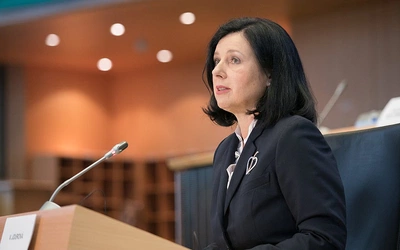
-
Ścięte drzewo owocuje. Dziś wspominamy patrona Polski
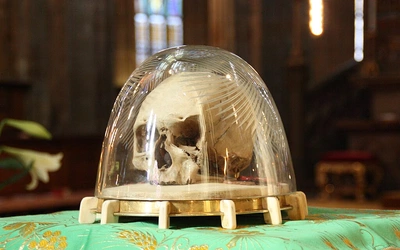
-
W habicie opowiadał o duchowości żony. W celi trzymał jej portret. Elżbieta Leseur jest kandydatką na ołtarze
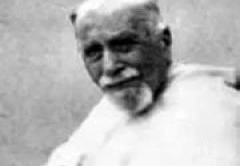
Najnowsze
-
1 „Naruszenie prawa do obrony”. RPO interweniuje w sprawie ks. Olszewskiego
-
2 Ponad 500 uratowanych dzieci. To bilans tegorocznej akcji 40 Dni dla Życia
-
3 Praca Opiekunki w Niemczech: Wyzwanie Pełne Satysfakcji
-
4 W habicie opowiadał o duchowości żony. W celi trzymał jej portret. Elżbieta Leseur jest kandydatką na ołtarze
-
5 Oddolna inicjatywa odgórnie narzucana. Komisja Europejska chce finansować aborcje
-
6 Bp Artur Ważny mianowany biskupem sosnowieckim
-
7 Argentyński lekarz skazany za ratowanie dziecka. Jego matce nie pomógł żaden orędownik „pro-choice”
-
8 Brzmi niewinnie, ale to zakaz mówienia prawdy. Magdalena Korzekwa-Kaliszuk o ustawie o tzw. mowie nienawiści
-
9 Blok gazowo-parowy w Rybniku z decyzją o pozwoleniu na budowę
-
10 Surogacja: najgorsze z pewnością się nie wydarzy? Owszem, właśnie się wydarzyło
Najpopularniejsze
- Na podstawie Ewangelii
- Blok gazowo-parowy w Rybniku z decyzją o pozwoleniu na budowę
- Po śladach miłości
- Ekspercki raport PAP – jak dwie dekady członkostwa w UE przeobraziły Polskę
- Praca Opiekunki w Niemczech: Wyzwanie Pełne Satysfakcji
- Coraz trudniej o wsparcie rodziny. „Wierzący rodzice nie chcą, aby ich dziecko zostało księdzem”
- Skąd się biorą myśli o powołaniu? S. Naumczyk o trzech możliwych źródłach [wideo]
- Papież: jesteśmy miłością życia Jezusa, dla Chrystusa jestem niezastąpiony
- Kiedy brak kapłana…
- W Chorzowie na mecz ligowy przyszło 50 tys. kibiców. To rekord XXI w.
-
W habicie opowiadał o duchowości żony. W celi trzymał jej portret. Elżbieta Leseur jest kandydatką na ołtarze O swojej żonie mówił „moja słodka Elżbieta”, w zakonnej celi miał jej portret, co roku celebrował rocznicę ślubu. Historię ateisty, który został dominikaninem i propagatorem duchowości swojej świętej żony, opisuje pierwsza polska biografia małżonków Elżbiety i Feliksa Leseur „Połączeni przez miłość, podzieleni przez wiarę”, której premiera miała miejsce na XIX Targach Wydawców Katolickich.
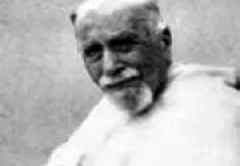
-
Brzmi niewinnie, ale to zakaz mówienia prawdy. Magdalena Korzekwa-Kaliszuk o ustawie o tzw. mowie nienawiści Problemem jest to, że lewicowi ideolodzy (a tacy kierują obecnie resortem sprawiedliwości w Polsce) zupełnie inaczej interpretują to, czym jest nawoływanie do nienawiści czy znieważanie, niż przyjęło się powszechnie uważać – powiedziała KAI Magdalena Korzekwa-Kaliszuk, prezes Fundacji Grupa Proelio, prawnik i psycholog.
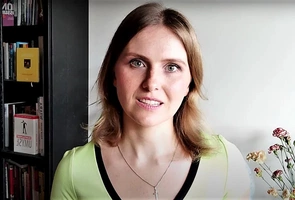
-
Argentyński lekarz skazany za ratowanie dziecka. Jego matce nie pomógł żaden orędownik „pro-choice” Argentyński lekarz Leandro Rodríguez Lastra został skazany za ratowanie dziecka, które miało zginąć poprzez aborcję chemiczną i przyjął wyrok, który oznaczał dwa lata zakazu prowadzenia praktyki medycznej. Propagatorzy „pro-choice” wyli z radości po ogłoszeniu wyroku. Żaden z nich nie pomógł zgwałconej kobiecie.

-
Bp Artur Ważny mianowany biskupem sosnowieckim Ojciec Święty Franciszek mianował biskupem sosnowieckim dotychczasowego biskupa pomocniczego diecezji tarnowskiej Artura Ważnego. Decyzję papieża ogłosiła 23 kwietnia w południe Nuncjatura Apostolska w Polsce.
